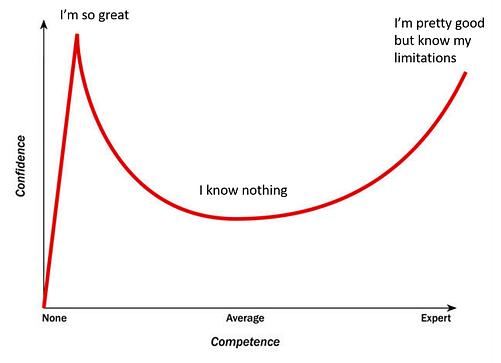
You Are Not a Virologist
Second-year Psychology students participating in the University Honours College followed a workshop on Blogging Science, which aims to help students to learn how to communicate science to the general public through informing, expressing an opinion, and relating scientific topics to relevant issues in society. Some of these written blog posts were selected to be published on Mindwise. This is the second blog post of this series and was written by Finn Kappus.
You might be a scientist, a prospective scientist, or just a person interested in psychology. Regardless of this, you are most likely not capable of debating the science behind COVID-19.
On a daily basis, we receive news about the pandemic. We check how many people are affected and if the government has taken new steps to fight the crisis. However, instead of supporting health-related decisions based on scientific facts, we discuss them in long phone calls with friends and relatives mainly because there is not much else to talk about in times of a global pandemic. Just the other day, I was talking to my mother and I noticed that we have developed distinct opinions about the measures taken by the government, the estimated number of unknown cases, and whether or not COVID-19 is deadlier than regular flu. Is it not weird how we believe to understand such a complex disease to the extent that we are confident enough to evaluate institutional efforts? It actually is not.
The Dunning-Kruger effect
In the field of Psychology, the Dunning-Kruger effect (Kruger & Dunning, 1999) has been known for quite a while. It is a bias in which people overestimate their own capabilities due to a lack of cognitive abilities in combination with missing awareness about their inability. Let’s consider Donald Trump. The current president of the United States is known for being overly confident. In fact, there are several topics that he claims to have a better knowledge of than anyone else such as renewable energy, social media, taxes, and the extremist group ISIS. This would be quite the astonishing extent of expertise for a single person if it were actually accurate. However, it seems like Trump has not exceeded a relatively low level of competences in the aforementioned fields and he appears to be unaware of it.
The figure below illustrates this phenomenon conceptually and displays people like Trump at the first tip of the graph, on the opposite side in relation to experts.

My mother and I, and probably many more, are not that different from people like Trump after all. We watch the news, read articles, or do other kinds of “research” about COVID-19, which is just about sufficient to obtain a basic understanding of the virus. By contrast, it takes four years of undergraduate school, four to six years of graduate school (Ph.D.), and three to five years of postdoctoral research training to become an established virologist according to the American Society for Virology. Yet, we argue as if virology is no more intricate than a child’s puzzle. We fail to see that we have merely finished the frame of the puzzle and even though virologists might have a few pieces missing as well due to the complexity of the pandemic, they are definitely a lot closer to seeing the full picture. We need to be careful when questioning information provided by professionals and realize that we are not qualified enough to debate the science behind COVID-19. Obviously, a critical mindset is appropriate with certain kinds of information, but we need to have trust in the scientific process and embrace the governmental measures that have been thoroughly developed in collaboration with academic institutions.
We need to be careful when questioning information provided by professionals and realize that we are not qualified enough to debate the science behind COVID-19.
Although a modest dispute with your mother about COVID-19 seems relatively harmless, it can get the ball rolling. Opinions and beliefs without underlying proof may circulate all around the world. This so-called fake news constitutes a serious threat in times of the crisis. In fact, UNESCO is actively opposing disinformation and endorses true facts instead after a significant increase in the prevalence of false information has been observed. This covers disinformation about the origin of the virus, possible interventions, as well as statements by governments or celebrities. For example, Bill Gates has been accused of misusing the development of a vaccine against COVID-19 to implant microchips despite any evidence on this matter. Consequently, efforts by social media platforms have become crucial because of their facilitating function in the spread of fake news. For instance, the messenger service WhatsApp reacted to the recent developments by implementing limitations to the forwarding function of messages.
Opinions and beliefs without underlying proof may circulate all around the world. This so-called fake news constitutes a serious threat in times of the crisis.
Certainly, you are not a virologist, hence your understanding of the virus is limited. Being aware of the limits of your knowledge is important to prevent the occurrence of the Dunning-Kruger Effect, which may have severe consequences during the ongoing pandemic. Regardless of how annoying it is to wear a face mask or to keep the distance at the beach on a hot summer day, there is a perspicuous reason for the measures: stopping the spread of COVID-19. Everyone should remind themselves that even with decreasing numbers in Europe, the end of the pandemic is not predictable. It remains crucial to take the situation seriously by reporting false information and searching for reliable sources, as well as adhering to governmental measures.
References
Kruger, J. & Dunning, D. (1999). Unskilled and unaware of it: How difficulties in recognizing one’s own incompetence lead to inflated self-assessments. Journal of Personality and Social Psychology, 77(6), 1121-1134. doi: 10.1037//0022-3514.77.6.1121
Note: Featured picture by Sébastien Dupont




Nice blog post, Finn! You did a good job describing the D-K effect 🙂